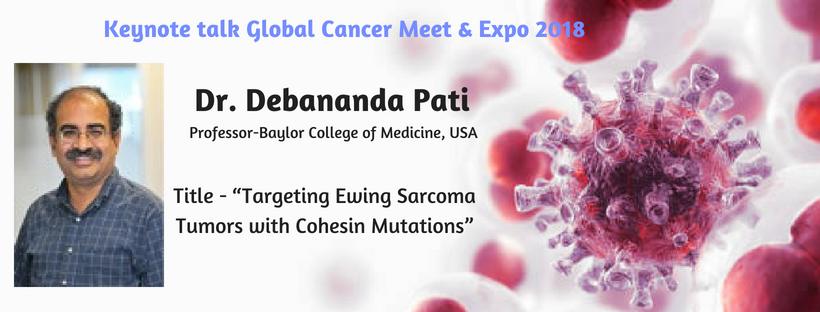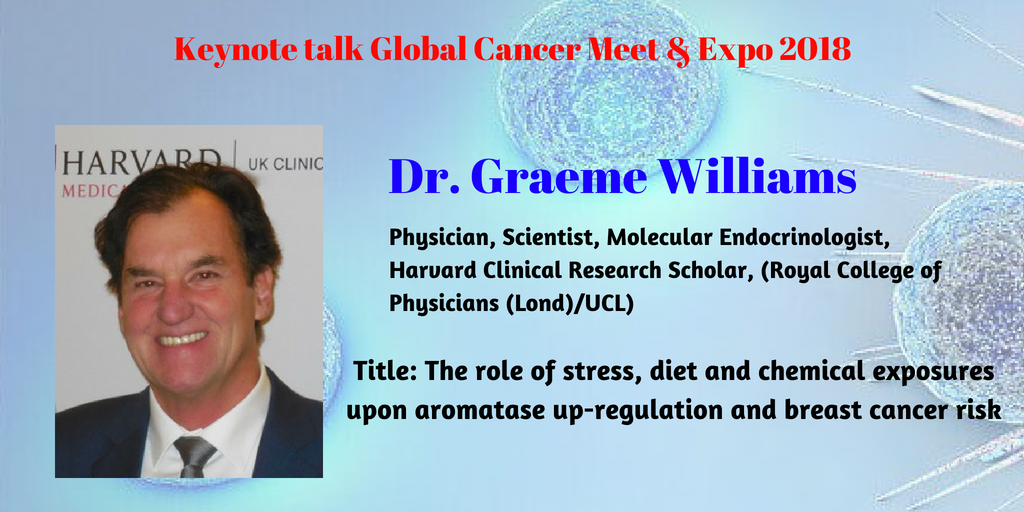Scientific Committee
Click on the image to view biography

Debananda Pati
Professor, Baylor College of Medicine, USA
Professor Pati is a highly accomplished cancer biologist who is an internationally recognized leader in the field of chromosomal cohesion and Separation and its role in carcinogenesis. He has a highly impressive track record not only in basic biology of chromosomal cohesion and separation, but devising novel and innovative approaches to target the cohesin pathway for treating refractory human cancers. He is widely recognized nationally and internationally as a creative and innovative scientist and is specifically recognized for his identification and targeting of the cohesin-protease, Separase for cancer therapy. Separase, an enzyme important for resolving chromosomal cohesion, is a novel oncogene and promoter of aneuploidy and tumorigenesis that Professor Pati demonstrated is an ideal target for cancer therapy. His laboratory was first to show that Separase is an oncogene and aneuploidy promoter. In a series of publications in high impact journals, Professor Pati and his colleagues demonstrated that overexpression of Separase in mouse models not only induces aneuploidy but also results in tumorigenesis.

Shi-Ming Tu
Clinical Professor , University of Texas, M.D. Anderson Cancer Center, USA
Shi-Ming Tu, M.D., received his bachelor degree from the Johns Hopkins University, Baltimore, Maryland, and medical degree from Washington University, St. Louis, Missouri. He completed his medical oncology fellowship at the University of Texas, M.D. Anderson Cancer Center,Houston, Texas, where he is currently a clinical professor in the Department of Genitourinary Medical Oncology.Dr. Tu is a clinician, researcher, educator, and author. He specializes in the treatment of prostate and testicular cancers. His research interests include bone metastasis, intratumoral heterogeneity, and cancer stem cells. He has published more than 100 peer-reviewed articles. His previous book, Origin of Cancers: Clinical Perspectives and Implications of a Stem-Cell Theory of Cancer, was published by Springer in 2010. His new book, Story of Hydra: Portrait of cancer as a stem-cell disease, will be published in fall of 2018.
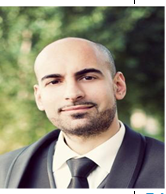
Davide Abed El Rahman
Doctor, G. Salvini Hospital , ITALY
Degree in Medicine and Surgery with honors, “laude” and winning of “ Nicolosi award " at Faculty of Medicine University of Palermo after discussing the urological thesis entitled l:“ α-lytic Medical treatment of benign prostatic hyperplasia: the problem of Floppy Iris Syndrome. Review of the literature and results of an experimental protocol for the evaluation of preoperative risk with the measurement of pupil size”
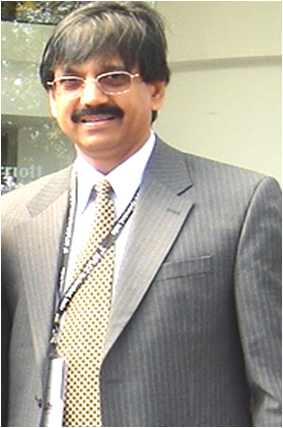
Ashok Srivastava
Chief Executive Officer & Chief Medical Officer, ClinFomatrix, and Cure Pharmaceuticals Inc, USA
Dr. Ashok Srivastava is Chief Executive Officer and Chief Medical Officer of ClinFomatrix Oncology and Chief Executive Officer of Cure Pharmaceuticals, Inc., USA.. He was also founder and Chief Medical Officer of CareBeyond - A Radiation Cancer Center in USA. He has more than 17 years of experience in drug development , medical affairs and commercialization of cancer drugs including radiopharmaceutical and supportive care; Phase I – 4, and marketing commercialization of immuno-oncology, hematology, oncology and radio pharmacetuical drugs in USA , EU and Japan. He is leader in Cancer Drug Development Worldwide large Phase 2 and 3 clinical trials in many countries. He contributed to 21-INDs and 7-NDAs of Cancer Drugs and supportive care, acquisition /merger of pharma and drug for more than $300 million . He received his clinical, medical training & worked at renowned medical centers and pharmaceutical institutions worldwide; Walter Reed Army Institute of Research and Medical Center, Daiichi, Sumitomo, Pharmacia, Pfizer, Sopherion Oncology., Eisai Oncology, and Spectrum Pharmaceuticals. He received his Clinical, Medical & Business educations from All India Institute of Medical Sciences, New Delhi, India ; Academy of Medical Sciences, Czechoslovakia; School of Medicine Nagasaki University, Nagasaki, Japan, and Pharmaceutical Business at Rutgers University Business Management, New Jersey, USA. He played key role in dramatic expansion of oncology drug – developed cancer drugs- Sutent (Sunitinib), Evoxac (Cevimeline HCl), and liposomal doxorubicin (Myocet) in combination with Herceptin & Paclitaxel for HER2 positive metastatic breast cancer patients and latuda (Lurasidone) for schizophrenia . He is one of the inventors of Japanese encephalitis vaccine (IXIARO) . He has published more than 85 papers in National and International Journals, more than 120 abstracts, 3 book chapters and 2 patents. He is recipient of numerous National & International prestigious medical awards and recognitions from United Nations, Ministry of Health, Japan, and Department of Army, Walter Reed Army Medical Center and Walter Reed Army Institute of Research, Washington DC, USA. He served as medical advisor to Poniard Pharmaceutical for small cell lung cancer in USA, EU and India. He is member of numerous prestigious organizations; America’s Top Oncologist of the years 2007- 2011, Breast Cancer Foundation , Indian Society of Oncology, American Society of Clinical Oncology, American Society for Therapeutic Radiology & Oncology, American Association of Cancer Research, and International Society of Lung Cancer. Dr. Srivastava is a strategic medical advisor and Board Member to several pharma in USA for clinical, regulatory and supervises cancer drug development . Recently Dr. Srivastava was awarded membership of Japan External Trade Organization, USA. Dr. Srivastava is a Leader in Drug Safety, pharmacovigilance of hematology, Oncology drugs and built a global drug safety and pharmacovigilance companies in USA, and India. Dr. Srivastava was invited as an honorable speaker at drug safety & Pharmacovigilance congress in London, UK , China and India in Jan 2012, 2013 and 2017. Dr. Srivastava brought 2 cancer drugs & a vaccine in global market for approx 3 – 3.5 billion $ global sales. He serves as board of director s for oncology virtual pharma companies in USA .
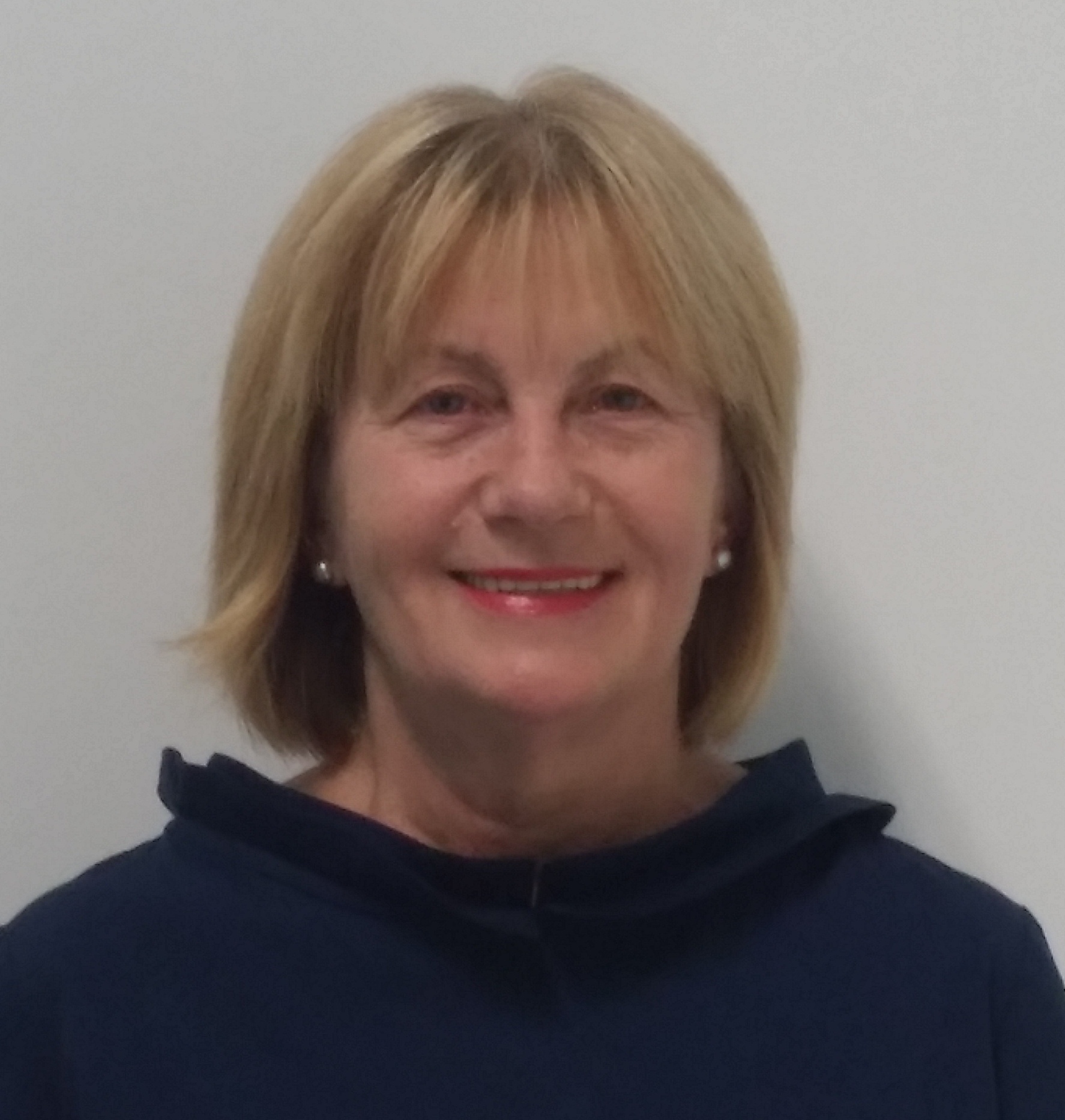
Aurelija Vaitkuviene
Afilliated senior researcher, Vilnius University, LITHUANIA.
Aurelija Vaitkuviene received her medical degree and completed obstetrics-gynecology fellowship at Vilnius University and clinics. She defended Doctoral thesis on Sonoscopy in Placenta previa. She obtained Laser medicine training from Wensky Laser Centre (USA), Lund University Laser Centre (Sweden), hysteroscopy-at Karolinska University (Sweden), colposcopy-at Lund University (Sweden), Greifswald University (Germany). She worked as obstetrician-gynecologist, associated professor, senior researcher. She headed Laser surgery/Biomedical optics department at Institute of Applied Research at Vilnius University. Currently Affiliated Senior Researcher, Biomedical diagnostics group leader at Institute of Photonics and Nanotechnology of Physics faculty, Vilnius University. She specializes in optical medical devices creation, clinical investigation, inter disciplinary teaching. She is founding member and scientific committee member at International Academy for Laser Surgery and Medicine (Florence), Past President (2013-2015) of International Society for Laser Surgery and Medicine, International Phototherapy Association, Past Chair of Colposcopy section of Lithuanian Association of Obstetricians and gynecologists. She was a President of EUROGIN –EAST conference, World Laserology Congress, Vilnius 2013, scientific committee member of Correlation optics International congress. Delivered presentations at International Society of Ultrasound in Obsterics and Gynecology (ISUOG), International Federation of Obstetrics and Gynecolgy (FIFA), International organization for optics and photonics (SPIE), American Association for Cancer Research (AACR), Frontiers in Cancer research, Cancer Science and Therapy, EUROGYN, European Cervical Cancer Association (ECCA), Minimal Invasive Gynecology Association (AAGL)) meetings. She published peer reviewed articles and 2 books in Lithuanian language “Laser surgery basics”,” Minimal invasive gynecology”,1-2 vol. She was at Editorial board of “HPV Today” (coordinator for Russia and NIS)”, currently reviewer for “Lasers in Medical Science”. She is Past President of Women NGO “Soroptimist International” Lithuanian Union.
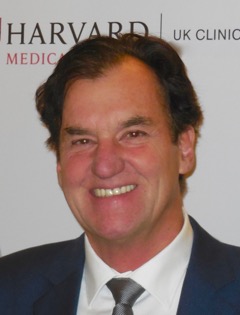
Graeme Williams
Physician, Scientist, Harvard
Physician, Scientist, Molecular Endocrinologist, (Molecular and CellularMedicine Group, University of Reading, UK) and Harvard Clinical ResearchScholar, (Royal College of Physicians (Lond)/UCL)Current Research: The role of aromatase, GPER, cortisol, poor carbohydratedietary choices and chemical exposures, upon the pathogenesis of obesity,NAFLD, insulin resistance, type two diabetes, breast and prostate cancer, andsexual dysfunction in men and women.In other words:- how stress, injudicious diets and everyday chemicalexposures, cause obesity, metabolic syndrome, type 2 diabetes and hormonerelatedcancer.
Scientific Sessions
Abstract Submission : July 31, 2018
Early Bird Registration : July 30, 2018
Registration Categories
Abstract Submission : July 31, 2018
Early Bird Registration : July 30, 2018
Awards
Various awards will be given to the participants for scientific presentations.
GCME (Global Cancer Meet and Expo) anticipates being able to provide funding to assist some participants attending from Lower and Middle Income group Countries to present their research at the conference. Participants desiring to be considered for one of these awards need to specify their interest after their submission of the required abstract. Selected participants will receive a sum of $250 to $1,000 (USD) scholarship Under three categories
1. Outstanding Submitted Abstract for the GCME conference
2. Best Research of the conference as evaluated by the Scientific Committee
3. Young Researcher Award under YRF category to encourage budding scientists/ researchers.
4. Best Poster Presentation Award
Decisions will be made based on evaluation of the submitted abstract by the scientific committee and amount of funds available.
We want you to grab this opportunity and participate in the conference.
Linkin Science and on behalf of the Scientific Committee Members of the Global Cancer Meet-2017 we congratulate the winners on grabbing the Global Excellence Awards. We wish you a great success for your future endeavours.
Past Conference Report
Global Cancer Meet & Expo 2017 Past Conference Repor:
Linkin Science has successfully completed Global Cancer Meet & Expo conference which was held during December 04-06, 2017 in Dubai. We thank all our expertise Scientific Committee Members who offered a constant support for the conference.
Linkin Science would like to greet all the Honourable guests, Keynote Speakers, Delegates, Media Partners and Exhibitors for their participation.
The keynote speakers include:
- Xiaoping Sun, University of Texas MD Anderson Cancer Center, USA
- Debananda Pati, Baylor College of Medicine, USA
- Yun Gong, University of Texas MD Anderson Cancer Center, USA
- Sheik Mohammad Fazle Akbar, Toshiba General Hospital, Japan
- Ahmed Bouzidi ,CEO of Vaxeal Group, Switzerland
The Global Excellence award winners for Cancer Meet 2017 are:
- Shafaq Maqsood, Shaukat Khanum Memorial Cancer hospital and Research, Pakistan (Poster category)
- Ambreen Muzaffar, Shifa International Hospitals LTD, Pakistan (Poster Category)
- Zarka Samoon, Aga Khan University Hospital, Pakistan (For Young Researcher Forum Category)
-
The 2nd Global Cancer Meet & Expo is scheduled during August 27-29, 2018 at ROME in ITALY. Hope to see you all at this international platform to explore your research in Oncology and Cancer research.
Hotel Mercure Roma West, ROME, Italy


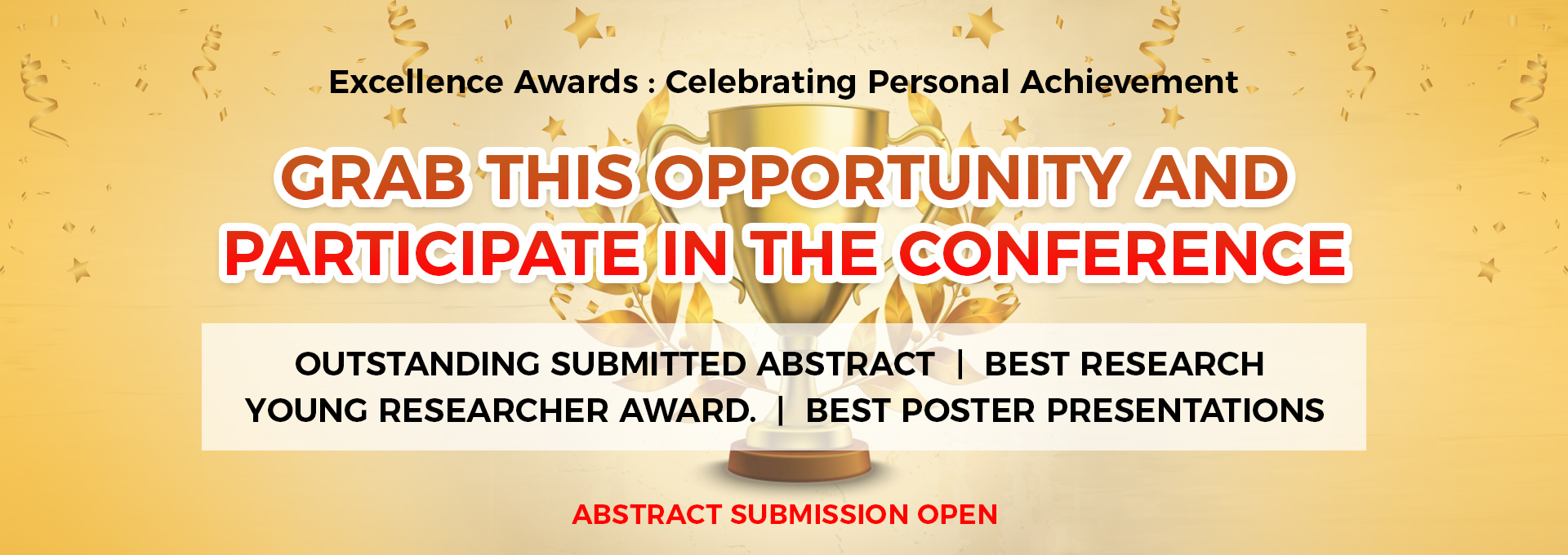
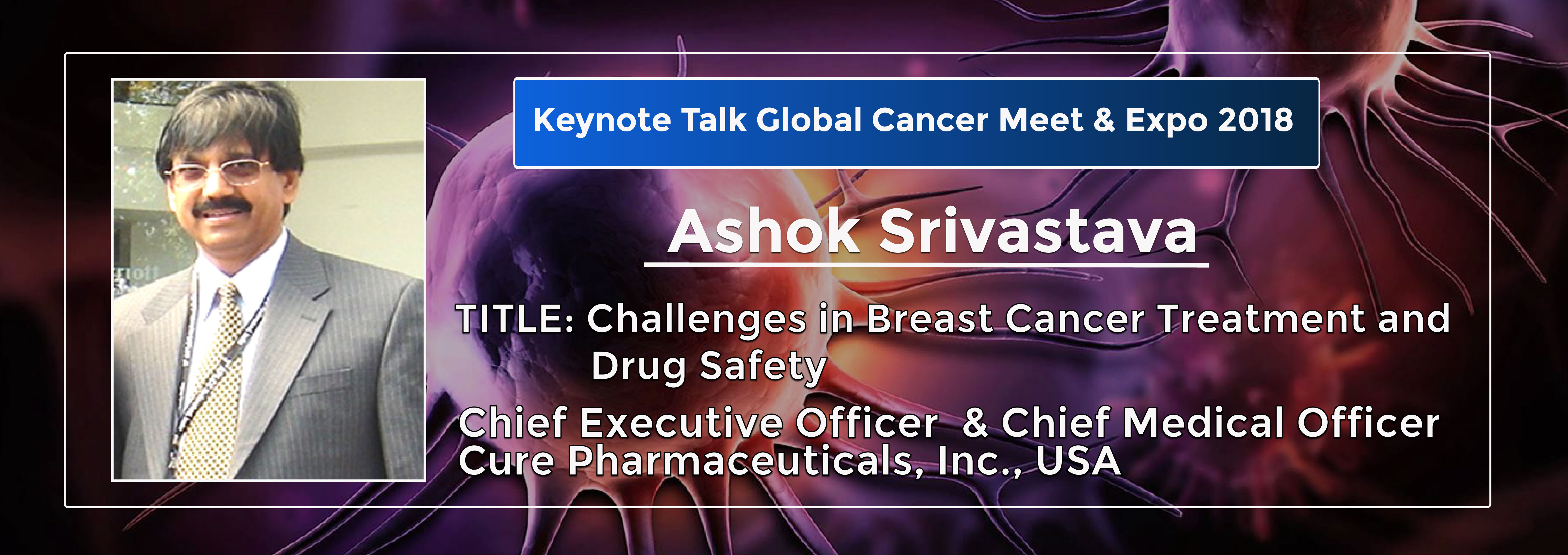
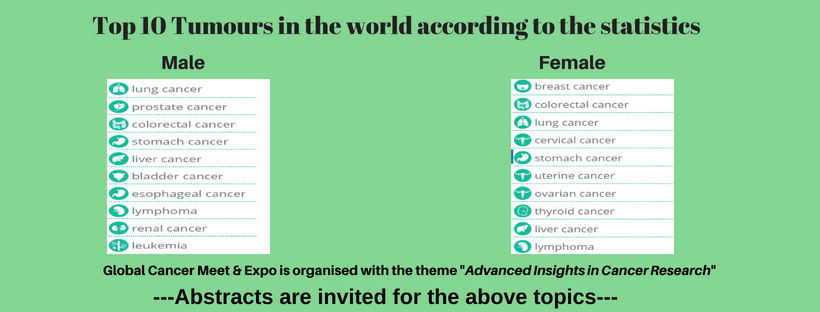
.jpg)
